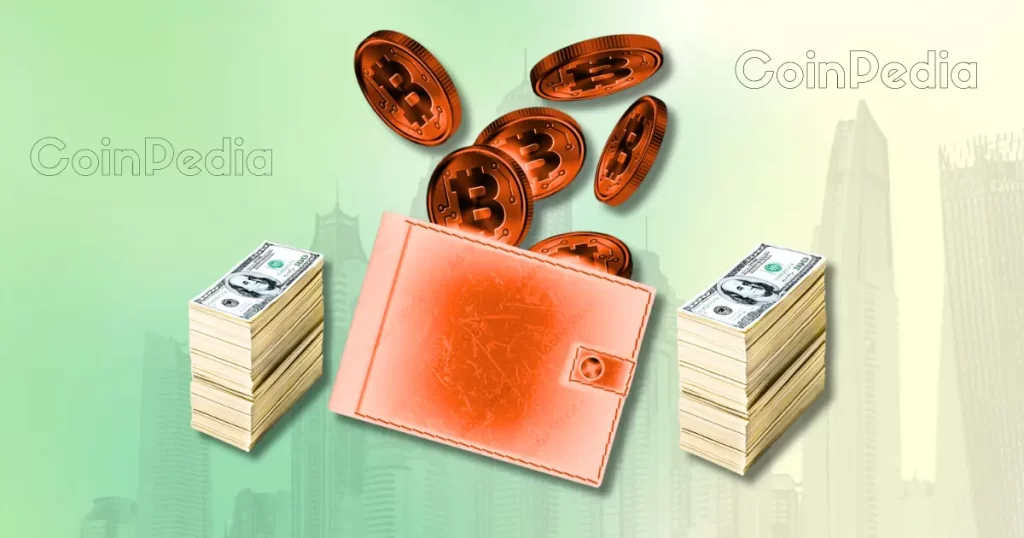Dubai Greenlights Tokenized Real-World Assets for Secondary Trading—Banks Scramble to Keep Up
Dubai’s regulators just cracked open the door for tradable tokenized assets—property, art, even private equity—on secondary markets. No more illiquid paperweights gathering dust in vaults.
The move slashes barriers for fractional ownership and 24/7 trading of high-value real-world assets. Expect a gold rush of digitized skyscrapers and sneaker collections hitting blockchain exchanges by Q3.
Traditional finance giants—bless their analog hearts—are now forced to compete with DeFi rails that actually move at internet speed. Watch for ’strategic blockchain partnerships’ announcements from banks who still think SWIFT is cutting-edge tech.

Dubai has taken a big step toward making real-world asset (RWA) tokenization a regulated reality. The city’s VIRTUAL Asset Regulatory Authority (VARA) has issued updated rules that now officially allow issuing and listing RWA tokens on secondary markets, a move that legal experts say could finally turn the long-hyped idea into a working market model.
 Regulatory update from Dubai’s VARA
Regulatory update from Dubai’s VARA
The Virtual Assets Regulatory Authority has released Version 2.0 of its Rulebooks — tightening rules on margin trading, token distribution, and collateral wallet arrangements
 Compliance deadline: June 19 #Dubai #VARA pic.twitter.com/7tcSM1xVLG
Compliance deadline: June 19 #Dubai #VARA pic.twitter.com/7tcSM1xVLG
Dubai’s ARVA Framework Explained
The newly updated Virtual Asset Issuance Rulebook, released on May 19, sets a clear legal path for tokenizing real-world assets like real estate, bonds, and other physical investments. Issuers and platforms now have until June 19 to fully comply with these changes.
According to Irina Heaver, a UAE-based crypto lawyer, these updates mark a key shift as issuing real-world asset tokens and listing them on secondary markets is no longer theoretical, it has become a regulatory reality in Dubai and the broader UAE market.
From STO Failures to RWA Success
Heaver compared RWAs to security token offerings (STOs), which tried to tokenize traditional securities but failed back in 2018–2019 due to a lack of regulatory clarity and trading infrastructure. This time, she believes Dubai is solving those issues upfront. RWAs in Dubai will be regulated as Asset-Referenced Virtual Assets (ARVA), and exchanges are now legally allowed to list and trade these tokens.
Unlike in other jurisdictions like Switzerland, where tokens can be issued but secondary trading remains murky, Dubai offers both issuance and trading under a well-defined regulatory umbrella.
- Also Read :
- Pakistan Launches Digital Asset Authority to Regulate Crypto, Targeting $25B Market
- ,
License and Capital Requirements
To launch an ARVA token in Dubai, issuers must hold a Category 1 license, prepare a detailed WHITE paper, and publish a risk disclosure statement. They also need to meet capital requirements, either 1.5 million AED (~$408,000) or 2% of reserve assets, and undergo monthly independent audits while staying under continuous regulatory supervision.
As Heaver puts it, Dubai’s approach is moving tokenization “from theory to execution.” With the legal groundwork in place, the UAE is shaping up to be a global hub for regulated real-world asset tokenization.
Never Miss a Beat in the Crypto World!Stay ahead with breaking news, expert analysis, and real-time updates on the latest trends in Bitcoin, altcoins, DeFi, NFTs, and more.
FAQs
What is the ARVA framework in Dubai’s new rulebook?Dubai’s updated rulebook regulates RWAs as Asset-Referenced Virtual Assets (ARVA), providing a clear legal path for tokenizing assets like real estate and bonds, and allowing exchanges to list them.
What is the broader impact of Dubai’s new RWA tokenization rules?Dubai’s new rules are moving RWA tokenization “from theory to execution,” positioning the UAE as a global hub for regulated real-world asset tokenization and modernizing investment.


